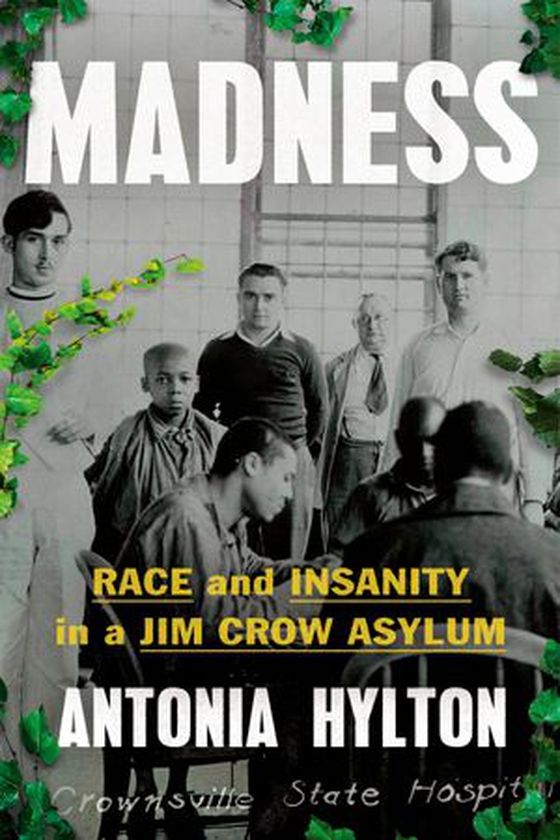
Madness ebok
109,-
In the tradition of The Immortal Life of Henrietta Lacks, this New York Times bestseller is a page-turning account of one of the nation’s last segregated asylums."A book that left me breathless." —Clint Smith, New York Times bestselling author of How The Word Is Passed"Fascinating." —The New York TimesFor centuries, Black patients have been absent from our history books. Madness transports reader…
In the tradition of The Immortal Life of Henrietta Lacks, this New York Times bestseller is a page-turning account of one of the nation’s last segregated asylums."A book that left me breathless." —Clint Smith, New York Times bestselling author of How The Word Is Passed"Fascinating." —The New York TimesFor centuries, Black patients have been absent from our history books. Madness transports readers through the ninety-three-year history of Crownsville Hospital, one of the last segregated asylums with surviving records and a campus that still stands to this day in Anne Arundel County, Maryland. Antonia Hylton blends the intimate tales of patients and employees whose lives were shaped by Crownsville with a decade's worth of investigative research and archival documents. Madness chronicles the stories of Black families whose mental health suffered as they tried, and sometimes failed, to find safety and dignity. Hylton also grapples with her own family’s experiences with mental illness, and the secrecy and shame that it reproduced for generations. As Crownsville Hospital grew from an antebellum-style work camp to a tiny city sitting on 1,500 acres, the institution became a microcosm of America’s evolving battles over slavery, racial integration, and civil rights. Hylton traces the legacy of slavery to the treatment of Black people’s bodies and minds in our current mental healthcare system. It is a captivating and heartbreaking meditation on how America decides who is sick or criminal, and who is worthy of our care or irredeemable.USA Today BestsellerNational Indie BestsellerKirkus Reviews Best Nonfiction Books of the YearELLE Magazine's Best (and Most Anticipated) Nonfiction Books of 2024Entertainment Weekly’s Best Books to Read 2024An Amazon “Best Book of the Year”
Undertittel
Race and Insanity in a Jim Crow Asylum
Forlag
Legacy Lit
Utgitt
17.03.2024
Sjanger
Språk
English
Format
epub
DRM-beskyttelse
LCP
ISBN
9781538723715
In the tradition of The Immortal Life of Henrietta Lacks, this New York Times bestseller is a page-turning account of one of the nation’s last segregated asylums.
"A book that left me breathless." —Clint Smith, New York Times bestselling author of How The Word Is Passed
"Fascinating." —The New York Times
For centuries, Black patients have been absent from our history books. Madness transports readers through the ninety-three-year history of Crownsville Hospital, one of the last segregated asylums with surviving records and a campus that still stands to this day in Anne Arundel County, Maryland.
Antonia Hylton blends the intimate tales of patients and employees whose lives were shaped by Crownsville with a decade's worth of investigative research and archival documents. Madness chronicles the stories of Black families whose mental health suffered as they tried, and sometimes failed, to find safety and dignity. Hylton also grapples with her own family’s experiences with mental illness, and the secrecy and shame that it reproduced for generations.
As Crownsville Hospital grew from an antebellum-style work camp to a tiny city sitting on 1,500 acres, the institution became a microcosm of America’s evolving battles over slavery, racial integration, and civil rights. Hylton traces the legacy of slavery to the treatment of Black people’s bodies and minds in our current mental healthcare system. It is a captivating and heartbreaking meditation on how America decides who is sick or criminal, and who is worthy of our care or irredeemable.
USA Today Bestseller
National Indie Bestseller
Kirkus Reviews Best Nonfiction Books of the Year
ELLE Magazine's Best (and Most Anticipated) Nonfiction Books of 2024
Entertainment Weekly’s Best Books to Read 2024
An Amazon “Best Book of the Year”
"A book that left me breathless." —Clint Smith, New York Times bestselling author of How The Word Is Passed
"Fascinating." —The New York Times
For centuries, Black patients have been absent from our history books. Madness transports readers through the ninety-three-year history of Crownsville Hospital, one of the last segregated asylums with surviving records and a campus that still stands to this day in Anne Arundel County, Maryland.
Antonia Hylton blends the intimate tales of patients and employees whose lives were shaped by Crownsville with a decade's worth of investigative research and archival documents. Madness chronicles the stories of Black families whose mental health suffered as they tried, and sometimes failed, to find safety and dignity. Hylton also grapples with her own family’s experiences with mental illness, and the secrecy and shame that it reproduced for generations.
As Crownsville Hospital grew from an antebellum-style work camp to a tiny city sitting on 1,500 acres, the institution became a microcosm of America’s evolving battles over slavery, racial integration, and civil rights. Hylton traces the legacy of slavery to the treatment of Black people’s bodies and minds in our current mental healthcare system. It is a captivating and heartbreaking meditation on how America decides who is sick or criminal, and who is worthy of our care or irredeemable.
USA Today Bestseller
National Indie Bestseller
Kirkus Reviews Best Nonfiction Books of the Year
ELLE Magazine's Best (and Most Anticipated) Nonfiction Books of 2024
Entertainment Weekly’s Best Books to Read 2024
An Amazon “Best Book of the Year”
Ingen anmeldelser ennå







